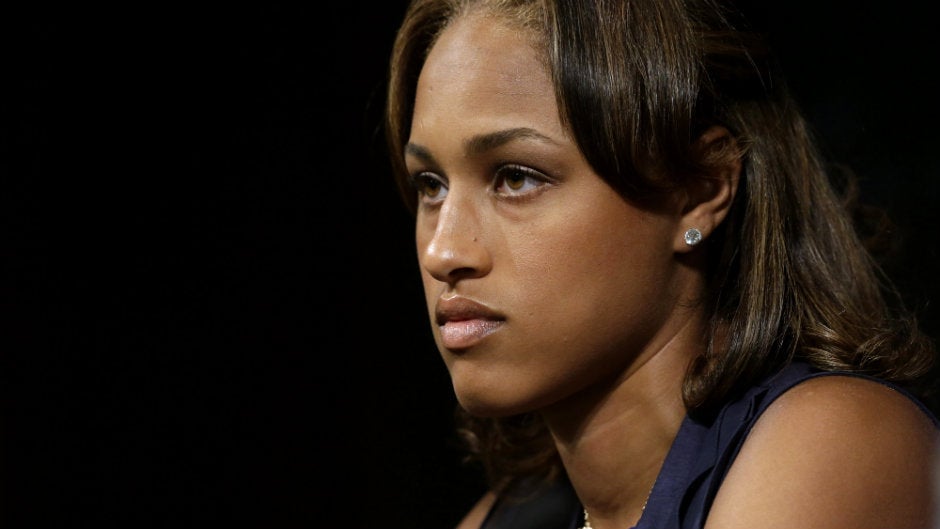Refusing to watch the Ray Rice video sends the wrong message to victims of abuse
This was it. He was going to kill me.


This was it. He was going to kill me.
The images circulating of football player Ray Rice beating his wife until she passed out has brought me back to memories almost two decades old.
I was 12 years old and in my stepfather’s grip. I couldn’t breathe, I couldn’t get away, but I felt something else too.
Relief? Happiness? Oddly, maybe gratification. In my weakness, I found myself pleased at the thought that if he killed me, no one could ignore what was happening in my home. I secretly hoped that my death would finally show everyone that my charming, successful, comical step-father had been a terror to me and my sister. My panicked, tearful calls to relatives had done nothing to get him away from us. We were a family, people said. Marriage was a promise to God, my pastor told my mom.
Don’t look. It’s a private family matter. It’s nobody else’s business.
Almost 20 years later, news clips showing NFL running back Ray Rice beating his wife unconscious and dropping her body on cold concrete brings me back to these feelings: relief, terror, and happiness. After months of people rationalizing, minimizing, explaining and defending the scene of Rice dragging his wife’s lifeless body out of an elevator, there was the ugly truth of domestic violence laid out in grainy video. People watched the cold indifference in his treatment of her exposed body, the controlled way he took her down. Rice’s lack of care and concern for her was horrifying. All of it undid the lies we tell about abusive men, tales of good souls swept away by wild, animal impulses and lashing out in a moment of fury.
As soon as the video was released, the NFL took swift action to protect its brand—Rice was fired from his team and suspended indefinitely from the league. And his wife responded, expressing outrage about the scene being so widely publicized:
No one knows the pain that the media and unwanted [opinions] from the public has cause my family. To make us relive a moment in our lives that we regret every day is a horrible thing. To take something away from the man I love that he has worked his ass off for all his life just to gain ratings is horrific.
This was the woman who said she “deeply regrets the role that she played the night of the incident” in which her husband hit her so hard she blacked out. This is the woman who joyfully married Rice the month after this attack, the mother of his two-year old daughter. The victim.
And so I watched as commentators took to social media to scold everyone for circulating that image. We were all revictimizing her, claimed sports journalist David Zirin. Don’t watch the Ray Rice video, wrote a Guardian columnist.
Don’t look. It’s a private family matter. It’s nobody else’s business.
Look, I’m deeply uncomfortable with the way this video is being played and shared all over the country with no regard for Janay or the potential triggers for other victims watching it. I don’t like the salacious and sensationalistic framing, or the way it feeds into notions of male dominance and female weakness. As a scholar, I am familiar with the way in which negative images of black women and men perpetuate damaging stereotypes about our worth and behavior, and the way these messages desensitize people to black suffering. I know that, ethically, those in the media should prioritize victims’ needs and safety when it comes to reporting. And as a survivor, I don’t want to watch someone get hurt.
But I also know that until this video was released, Janay’s abuse was downplayed. And that she was part of that effort. Respecting the wishes of a victim sounds right, but helping aid a woman who continues to lie and make excuses for a violent attacker also puts this request in the realm of complicity with misogynistic violence. Janay, it seems, wants us to hide the evidence, to go on with the original plan of forgetting this ever happened and pretending like it was the first time.
Simplistic readings of this situation are made all the more problematic when you consider that there’s a child in that home, growing up with a mother who married a man who nearly killed her. Children who grow up in homes with domestic violence are likely to suffer from anxiety, illness, and depression. And there is up to a 60% chance that Rice will eventually use those hands to harm that baby, too.
So do we stop circulating the video so we don’t have to deal with the horror? We avert our eyes and say we’re doing it for Janay? When has turning a blind eye ever brought about change?
Look, Janay Rice’s phone wasn’t hacked for the video of her husband harming her. There was no reasonable expectation of privacy here. Ray Rice attacked his partner in public, flaunted his dominance over her, left her laying facedown as strangers rushed to help, and he made us all witnesses. If anyone should be blamed for exposing Janay, for violating her rights, for crossing boundaries and bringing others into their lives, it’s him. There is power in laying witness. And there is a deep failure in refusing to do so.
Truth is, misogyny and violence against women thrives in darkness. I quit hiding and covering up for violence against women long ago. And I won’t do it for Janay.